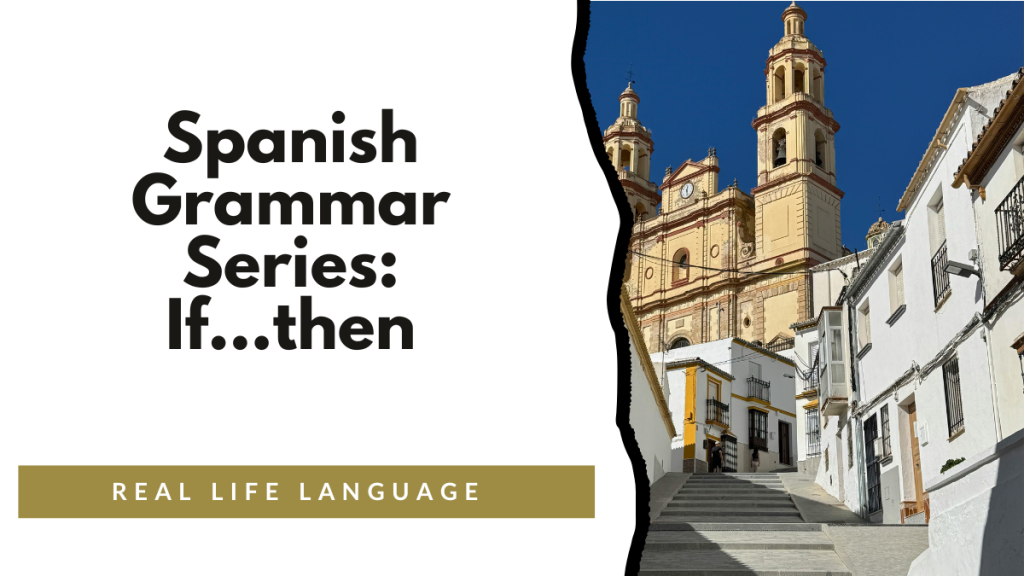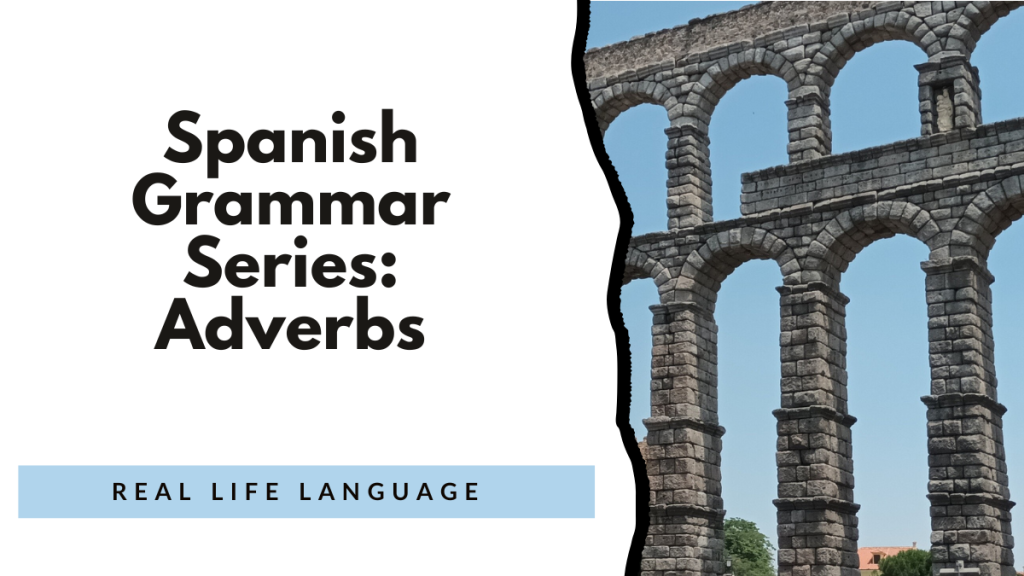(Los Tiempos Perfectos del Español)
The perfect tenses are used to talk about completed actions — things that have happened, had happened, will have happened, or would have happened.
They all use a form of the auxiliary verb haber + a past participle.
Formula for all perfect tenses:
haber + past participle
1) Review: The Past Participle
Before forming perfect tenses, you must know how to form participles (review from your last lesson):
| Verb Type | Ending | Example | Meaning |
| -AR | -ado | hablado | spoken |
| -ER | -ido | comido | eaten |
| -IR | -ido | vivido | lived |
Irregular Participles (memorize these!)
| Verb | Participle | English |
| abrir | abierto | opened |
| decir | dicho | said |
| escribir | escrito | written |
| hacer | hecho | done/made |
| morir | muerto | died |
| poner | puesto | put/placed |
| resolver | resuelto | solved |
| romper | roto | broken |
| ver | visto | seen |
| volver | vuelto | returned |
| cubrir | cubierto | covered |
The participle never changes in the perfect tenses — it stays the same for all subjects.
2) Present Perfect (El Pretérito Perfecto Compuesto)
Used to talk about actions that have happened recently or that are still relevant to the present.
Formula:
he / has / ha / hemos / habéis / han + past participle
| Subject | Form of haber | Example |
| yo | he | he hablado |
| tú | has | has comido |
| él / ella / Ud. | ha | ha vivido |
| nosotros | hemos | hemos estudiado |
| vosotros | habéis | habéis leído |
| ellos / ellas / Uds. | han | han hecho |
Examples:
- He visto esa película. → I have seen that movie.
- Hemos comido en ese restaurante antes. → We’ve eaten at that restaurant before.
- ¿Has terminado tu tarea? → Have you finished your homework?
Common time expressions:
- hoy → today
- esta semana → this week
- este mes → this month
- últimamente → lately
- ya → already
- todavía no → not yet
Todavía no he comido. → I haven’t eaten yet.
3) Past Perfect (Pluperfect) (El Pluscuamperfecto)
Used to describe something that had happened before another past action.
Formula:
había / habías / había / habíamos / habíais / habían + past participle
| Subject | Form of haber | Example |
| yo | había | había hablado |
| tú | habías | habías comido |
| él / ella / Ud. | había | había vivido |
| nosotros | habíamos | habíamos hecho |
| vosotros | habíais | habíais leído |
| ellos / ellas / Uds. | habían | habían visto |
Examples:
- Cuando llegué, ella ya había salido. → When I arrived, she had already left.
- Habíamos terminado el proyecto antes de la fecha límite. → We had finished the project before the deadline.
- Nunca habían viajado a España. → They had never traveled to Spain.
Common time expressions:
- antes → before
- ya → already
- todavía no → not yet
- cuando → when
Ya había comido cuando llegaste. → I had already eaten when you arrived.
4) Future Perfect (El Futuro Perfecto)
Used to express what will have happened by a certain time in the future, or to speculate about the past.
Formula:
habré / habrás / habrá / habremos / habréis / habrán + past participle
| Subject | Form of haber | Example |
| yo | habré | habré hablado |
| tú | habrás | habrás comido |
| él / ella / Ud. | habrá | habrá vivido |
| nosotros | habremos | habremos hecho |
| vosotros | habréis | habréis estudiado |
| ellos / ellas / Uds. | habrán | habrán llegado |
Examples:
- Para mañana, habré terminado el informe. → By tomorrow, I will have finished the report.
- Habrá salido ya. → He must have already left.
- En 2030, habremos aprendido mucho. → By 2030, we will have learned a lot.
Common time expressions:
- para (for/by) → para el viernes (by Friday)
- dentro de (within) → dentro de un año (within a year)
- en (in) → en dos días (in two days)
The future perfect can also express probability or assumption about the past:
- ¿Dónde está Juan?
—Habrá salido. → He must have gone out.
5) Conditional Perfect (El Condicional Perfecto)
Used to describe what would have happened, but didn’t — often used in “if” (si) clauses.
Formula:
habría / habrías / habría / habríamos / habríais / habrían + past participle
| Subject | Form of haber | Example |
| yo | habría | habría hablado |
| tú | habrías | habrías comido |
| él / ella / Ud. | habría | habría vivido |
| nosotros | habríamos | habríamos hecho |
| vosotros | habríais | habríais visto |
| ellos / ellas / Uds. | habrían | habrían dicho |
Examples:
- Habría ido, pero estaba enfermo. → I would have gone, but I was sick.
- Ellos habrían venido si hubieran podido. → They would have come if they could have.
- ¿Qué habrías hecho tú? → What would you have done?
Often appears with:
- si + pluperfect subjunctive → Si hubiera tenido tiempo, habría ido.
- expressions of regret or hypothetical action.
6) Summary Chart of All Perfect Tenses
| Tense | “Haber” Form | English Equivalent | Example | Translation |
| Present Perfect | he, has, ha, hemos, habéis, han | have / has done | He comido. | I have eaten. |
| Past Perfect (Pluperfect) | había, habías, había, habíamos, habíais, habían | had done | Había estudiado. | I had studied. |
| Future Perfect | habré, habrás, habrá, habremos, habréis, habrán | will have done | Habré terminado. | I will have finished. |
| Conditional Perfect | habría, habrías, habría, habríamos, habríais, habrían | would have done | Habría ido. | I would have gone. |
7) Negatives and Questions
Just place “no” or question words before haber.
Negatives:
- No he visto la película. → I haven’t seen the movie.
- No habían comido antes. → They hadn’t eaten before.
Questions:
- ¿Has leído este libro? → Have you read this book?
- ¿Habías estado allí antes? → Had you been there before?
8) Common Time Expressions with Each Perfect Tense
| Tense | Time Expressions | Example |
| Present Perfect | hoy, esta semana, ya, todavía no, últimamente | Ya he terminado. |
| Past Perfect | antes, cuando, ya, todavía no | Cuando llegué, ya había salido. |
| Future Perfect | para, dentro de, en + tiempo | Para el lunes, habré terminado. |
| Conditional Perfect | si clauses, pero, ojalá | Habría ido, pero estaba ocupado. |
9) Practice: Fill in the Blanks
- Yo __________ (ver) esa película antes.
- Cuando llegamos, ellos ya __________ (comer).
- Para mañana, tú __________ (terminar) el informe.
- Si hubiera tenido tiempo, __________ (viajar) contigo.
- Nosotros __________ (hacer) la tarea esta semana.
Answers:
- he visto
- habían comido
- habrás terminado
- habría viajado
- hemos hecho
10) Practice: Translate
- I have finished the project.
- We had left before you arrived.
- By next week, they will have moved.
- She would have called, but she forgot.
- Have you seen that movie yet?
Answers:
- He terminado el proyecto.
- Habíamos salido antes de que llegaras.
- Para la próxima semana, se habrán mudado.
- Habría llamado, pero se olvidó.
- ¿Has visto esa película ya?
11) Common Pitfalls & Fixes
| Wrong | Correct | Why |
| He comidos mucho. | He comido mucho. | No agreement with haber. |
| Había fui al parque. | Había ido al parque. | Use participle, not preterite form. |
| Habré terminando pronto. | Habré terminado pronto. | Use participle, not gerund. |
| Si tendría tiempo, habría ido. | Si hubiera tenido tiempo, habría ido. | “If” clause needs pluperfect subjunctive. |
12) Quick Reference Summary
| Tense | Meaning | Formula | Example |
| Present Perfect | have / has done | he + participle | He comido. |
| Past Perfect | had done | había + participle | Había salido. |
| Future Perfect | will have done | habré + participle | Habré llegado. |
| Conditional Perfect | would have done | habría + participle | Habría ido. |
Why Perfect Tenses Matter
Mastering the perfect tenses allows learners to:
- Discuss life experiences, completed actions, and regrets
- Connect past, present, and future events clearly
- Use if-then and subjunctive structures with precision
- Sound natural, fluent, and time-aware in advanced communication
They’re essential for storytelling, reflection, and expressing complex timelines — a major milestone in Spanish proficiency.
Here are some of my favorite resources to engage and inspire learners, to include my lifelong language learning journey.
Building Proficiency for World Language Learners: 100+ High-Interest Activities
Discover over 100 dynamic activities to make world language learning interactive and fun. I wrote this book with some of my favorite activities for educators aiming to build proficiency with high-impact strategies.
Learn more and get your copy here.
5 Weeks of No and Low Prep Fun
Need quick, engaging activities for your class? This free guide includes 25 no-prep and low-prep ideas to save time while keeping students excited about learning.
Download your free copy now.
100s of videos to learn Spanish:

